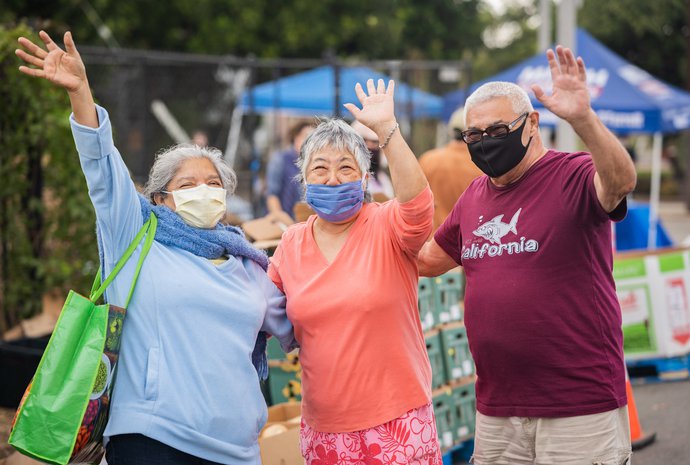South LA Nonprofits Use HUD Grants to Promote Housing Stability and Career Opportunities
Several organizations in Los Angeles received grant funding through LISC LA's Department of Housing and Urban Development (HUD) Section 4 program, which aimed to support community development efforts and help working-class communities thrive. These grants not only provided immediate financial support but also focused on capacity building to empower the organizations for long-term impact.
Innovative Housing Opportunities (IHO) received a $30,000 grant to bolster the work of their community council, the Empowerment Congress. With this funding, IHO's Empowerment Congress engaged in targeted outreach for the 87th and Western housing site in South LA. By serving as a direct conduit to local resources and providing financial education, the Empowerment Congress empowered the community and facilitated high-quality development. This capacity building approach enhanced the organization's ability to engage with residents, provide vital support, and foster sustainable community development efforts.
HOPE Homes also received a $30,000 grant to implement community outreach initiatives aimed at addressing the social isolation of residents, particularly those with intellectual/developmental disabilities (I/DD). Recognizing the challenges posed by the COVID-19 pandemic, HOPE increased its outreach efforts by providing enhanced resources and education to individuals with I/DD. By strengthening their outreach capabilities, HOPE improved access to housing and retention services, ensuring that residents with I/DD received the support they needed to thrive.
Venice Community Housing (VCH) utilized their $30,000 grant to enhance the capabilities of their property management team. By recruiting an Occupancy Specialist and offering leadership, staff wellness, and property management training, VCH promoted career development for BIPOC property managers and ensured compliance during the annual recertification process. Moreover, the grant funds contributed to the successful rehabilitation of two small properties acquired through collaboration with the Liberty Community Land Trust. These capacity-building initiatives strengthened VCH's property management expertise and advanced their mission of providing affordable housing.

CDTech received a $50,000 grant to support their College Pathways program, which provided workforce training and courses to young adults, helping them transition into careers. Through the College Pathways Community and Economic Development Program (CPED), co-led with LA Trade Tech College, students gained valuable skills and received ongoing advice and technical assistance for remote and in-person learning. Additionally, CDTech managed the California Youth Leadership Corps internships, which offered workforce and career development, work experience, and financial support to South LA residents facing extreme financial instability due to COVID-19. This capacity-building approach equipped the organization to support young adults with the tools and resources they needed to succeed in the workforce, thus fostering long-term economic empowerment.
T.R.U.S.T. South LA received a $50,000 grant, which subsidized their anti-displacement and acquisition/rehabilitation efforts for unsubsidized small multifamily housing. The funds also supported community members in accessing training on land stewardship through the Community Mosaic program. By focusing on capacity building, T.R.U.S.T. South LA aimed to empower working-class Black and Brown tenants, develop expertise in housing acquisition and rehabilitation, and promote community land trusts. These efforts fortified the organization's capabilities to combat displacement, create affordable housing opportunities, and engage in sustainable community development.
By utilizing the HUD Section 4 grant funds for capacity-building efforts, these organizations have not only made immediate positive impacts on their communities but also enhanced their capabilities for long-term success. This approach ensures that they can continue their vital work, driving positive change and creating a better future for all in the neighborhoods they serve.


